Grammy Award-winning rapper, Coolio’s cause of death has been revealed as a fentanyl overdose, according to a recent report by CNN and The New York Times. The rapper, whose real name is Artis Leon Ivey Jr., passed away on September 28, 2022, at the age of 59.

© Alex Valentovich / New Fury Media / Riot Fest Chicago 2022
The New York Times reported that Coolio had tested positive for fentanyl, a synthetic opioid that is 50 times more potent than heroin, 100 times more potent than morphine (CDC) and has been responsible for a surge in overdose deaths in recent years. The amount of fentanyl detected in Coolio’s system was small, but it was determined to be the cause of death, along with coronary artery disease.
Coolio rose to fame in the 90s with hits such as “Gangsta’s Paradise,” which won a Grammy for Best Rap Performance in 1996. He was also known for his appearances on reality shows such as “Celebrity Big Brother” and “Wife Swap.” His death was met with an outpouring of condolences from fans and fellow artists.

So many families including Coolio’s have suffered the loss of their loved ones. The revelation of Coolio’s fentanyl overdose highlights the ongoing opioid epidemic in the United States, where thousands of people die every year due to opioid-related overdoses (CDC).
Fountain Valley Officials Applaud Naloxone Program at Area SchoolsAt the first Fountain Valley mayor’s breakfast of the year, held on March 30 at Fountain Valley Regional Hospital in Orange County, California, several local issues were discussed, including a recently established drug program in schools. The program, which was initiated last November, aims to prevent overdoses in youth by placing drug stations with naloxone, a nasal spray that can reverse the effects of opioids, in schools. The program comes in response to the growing number of children overdosing on fentanyl across the state and country.
Why is this program important?
The opioid crisis has become a major concern in many communities, and youth are particularly vulnerable to its effects. Illicit drugs laced with fentanyl, a powerful synthetic opioid, are increasingly being sold to unsuspecting youth, often through social media platforms. This has led to a rise in overdoses among young people, including in schools. The drug program in Fountain Valley schools aims to address this issue and provide a timely response to overdoses, potentially saving lives.
What does the program involve?
The program involves placing naloxone stations in each elementary school, middle school, and high school in the Fountain Valley area. These stations are equipped with naloxone, a medication that can quickly reverse the effects of opioids and prevent overdose deaths. The naloxone is administered through a nasal spray, making it easy to use by school staff or other trained personnel in case of an emergency. The program was initiated by the Fountain Valley Fire Department and Emergency Medical Services teams, in collaboration with city officials.
Success of the program
Since its implementation, the program has already proven successful in saving a student’s life. In January, a student at Ocean High School who had taken an unknown substance bought off the street that was laced with fentanyl was administered naloxone by a teacher, according to Fountain Valley Fire Department Chief Bill McQuaid. The timely treatment with naloxone, also known as Narcan, saved her life, highlighting the importance of having naloxone stations in schools.
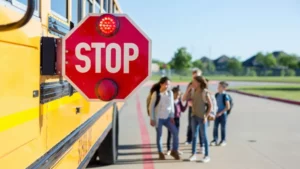
Why is this program necessary?
Lauren Lee, a former emergency room nurse who developed the plan for the school stations and currently serves as the Emergency Medical Services manager for the city fire department, emphasizes the importance of the program for student safety. She notes that a growing number of kids, including those in elementary school and older, are buying illicit drugs from dealers on social media sites, often through platforms like Snapchat. These drugs are sometimes misrepresented as harmless, such as marijuana gummies, when in fact they are laced with dangerous opioids like fentanyl. The presence of naloxone stations in schools can provide a crucial intervention in case of an overdose, potentially saving lives.
In conclusion, the drug program implemented in Fountain Valley schools to prevent overdoses in youth is a timely and important initiative. With the opioid crisis affecting communities across the country, it’s crucial to have measures in place to address the growing number of overdoses, including among young people. The presence of naloxone stations in schools can provide a lifeline in case of an overdose, potentially saving lives and protecting the well-being of students. As the program continues to be implemented and expanded, it is hoped that the need for naloxone stations in schools will decrease in the future, reflecting a reduction in overdoses and improved awareness about the dangers of opioids among youth. In the meantime, the program serves as a valuable resource to protect the health and safety of students in Fountain Valley schools. So far, the program has already demonstrated success in saving lives, and its continued implementation and expansion are critical in addressing the ongoing opioid crisis and protecting our youth.
Alexandra’s Law Fails in Senate Committee: What This Means for the Fentanyl EpidemicAlexandra’s Law Fails in Senate Committee: What This Means for the Fentanyl Epidemic
On Tuesday, Senate Bill SB 44, also known as Alexandra’s Law, failed to pass in the Senate Public Safety Committee. The bill, jointly authored by Senators Umberg & Ochoa Bogh, proposed implementing a fentanyl admonishment in California to address the growing opioid crisis.
The bill required issuing a written advisory or admonishment to a person convicted of a fentanyl-related drug offense, informing them of the dangers of manufacturing and distributing controlled substances, and potential criminal liability if someone dies due to their actions. However, the bill did not pass the committee, though it was granted reconsideration for a later hearing.
Why Is Alexandra’s Law So Important?
Fentanyl is an opioid 50-100 times more potent than morphine, with a rapid onset and short duration of action. It has become increasingly prevalent in street drugs and has been responsible for thousands of deaths across the U.S.
California alone accounts for approximately 11.5% of the 101,751 drug overdose deaths that occurred in the U.S. in the 12-month period ending in October 2022 (CDC).
The impact of fentanyl is devastating, with youth under age 24 accounting for the fastest rise in drug deaths. In California, a young person under 24 is dying from fentanyl every 12 hours. The biggest factor attributing to this danger is the undisclosed addition of fentanyl to other drugs, leading to fentanyl poisoning and death.
Fentanyl is the lead killer of teens in Orange County and of individuals between the ages of 18-45 in the U.S.
What Would Alexandra’s Law Do?
The proposed law would require an admonishment to be issued to anyone convicted of a fentanyl-related drug offense. This written advisory would inform them of the dangers of manufacturing and distributing controlled substances and potential criminal liability if another person dies due to their actions. The goal of the law is to hold predatory dealers accountable for the destruction they are causing and deter people from trafficking fentanyl.
What Are the Consequences of Failing to Pass Alexandra’s Law?
The failure to pass Alexandra’s Law is a significant blow to efforts to address the fentanyl epidemic. Without a comprehensive approach, it is challenging to curb the increase in fentanyl-related deaths. The bill’s authors and supporters believe that the fentanyl crisis requires a multifaceted approach, including education, law enforcement, and harm reduction angles, to tackle the issue comprehensively.

What Can We Do?
While the failure of Alexandra’s Law is disappointing, we can still take action to address the fentanyl epidemic. Here are some things we can do:
- Spread awareness: Educate yourself and others about the dangers of fentanyl and how to recognize the signs of an overdose.
- Advocate for change: Contact your representatives and urge them to support legislation to address the fentanyl epidemic.
- Get help: If you or someone you know is struggling with addiction, seek help from a healthcare professional or a support group.
The fentanyl epidemic is a growing problem that requires immediate action. While Alexandra’s Law may not have passed this time, we must continue to fight for solutions that will save lives and keep our communities safe.
FentanylSolution.org officially supported this bill with other important organizations such as the Association of Orange County Deputy Sheriffs, CA Coalition of School Safety Professionals, Drug Awareness Foundation, and California District Attorneys Association. The Mayors of Anaheim, Bakersfield, Corona, Irvine, Fontana, Fresno, Lake Elsinore, Murrieta, Menifee, Norco, Perris, Riverside, Sacramento, San Francisco, San Jose, Stockton and Temecula also showed their support.
In addition, our President and CEO, Janice M. Celeste, was in Sacramento at the California State Capital to support this bill and the parents who have lost a child to fentanyl poisoning.
What Parents Must Know About Fentanyl
What is Fentanyl?
Fentanyl is a synthetic opioid that is estimated to be 50 to 100 times more potent than morphine. It is a powerful and highly addictive drug that is responsible for a significant portion of the opioid epidemic that has swept across the United States and other countries. The drug is commonly used in medical settings as a strong pain reliever and anesthetic, but it is also frequently used recreationally or hidden, unbeknownst to the user, in illicit pills that teens can purchase from the internet. The dangers of overdosing on fentanyl are significant, and as a parent, it is important to be aware of the signs of use and what to look for.

Why Should I Be Concerned?
I know what you’re thinking, my child would never do this. And I can tell you that almost every parent who has buried their child from fentanyl poisoning, has said the same thing. Their child wasn’t a bad kid, they took a fake pill from a friend or found it online. Children as young as 11 have found these pills on the internet and have succumbed to them.
Fentanyl is often mixed with other drugs including cocaine and methamphetamines to enhance their effects, but most teens think they are taking a Percocet™, Xanax™, Oxycodone™, an Adderall™ or similar pill. Many of these illicit fentanyl-laced pills are pressed in someone’s garage or basement and the fake pills are almost impossible to detect from the authentic pills. The Drug Enforcement Agency (DEA) “has found that, of the fentanyl-laced fake…pills analyzed in 2022, six out of ten now contain a potentially lethal dose of fentanyl.” Children who find these pills on Snapchat, Instagram, and other social media are essentially being poisoned to death. The statistics have grown and the unfortunate familiar scenario of parents waking up to find their children deceased in their rooms has increased too.
“I know what you’re thinking, my child would never do this.”
According to the CDC, more than 150 people die every day from overdoses related to synthetic opioids like fentanyl. The signs of fentanyl poisoning can be difficult to spot.
However, some common symptoms to watch for include:
- Slow breathing or cessation of breathing
- Extreme drowsiness or unconsciousness
- Confusion or disorientation
- Nausea or vomiting
- Constricted (very small) pupils
- Cold and clammy skin
To help prevent your child from using fentanyl or other opioids, it is important to have open and honest conversations about drug use and the dangers of fentanyl. Encourage your child to seek help if they are struggling with substance abuse or addiction, and make sure they are aware of the resources available to them, such as rehabilitation programs, support groups, and mental health services. Don’t wait. Get help right away.
Where To Get Lifesaving Narcan
The dangers of fentanyl are significant, and as a parent, it is important to be aware of the signs of use and what to look for. If you suspect that your child is using the drug, seek help immediately. By educating yourself and your child, you can help protect them from the dangers of this powerful and super addictive substance.
If you suspect that your child is using fentanyl, it is important to seek help immediately. In cases of overdose, the drug can cause a person to stop breathing, leading to death within minutes. Naloxone, a medication that can reverse the effects of an opioid overdose, can be life-saving in these situations. Parents of teen children should keep Narcan (the brand name for Naloxone) in their first aid kit at home and learn how to use it. Schools are stocking up on Narcan and are keeping it in nurses’ offices.
Free Naloxone, also known by the brand name Narcan, can be obtained from several sources. Here are a few places where people can find free Narcan:
- Pharmacies: Many pharmacies, including CVS and Walgreens, offer free Narcan without a prescription. You can call your local pharmacy to see if they participate in this program.
- Health Departments: Many local health departments, such as county health departments, provide free Narcan to those in need. You can contact your local health department for more information.
- Community Organizations: Some community organizations, such as harm reduction organizations and substance abuse treatment centers, offer free Narcan to those at risk of opioid overdose.
- Overdose Prevention Programs: Many cities and states have established overdose prevention programs that provide free Narcan to those at risk of opioid overdose.
- Online Programs: Some online programs, such as the Naloxone Distribution Partnership, offer free Narcan kits through the mail.
It is important to note that laws and availability may vary by state, so it is best to check with local organizations for more information on where to obtain free Narcan. In the event of an overdose, every second counts, so having Narcan on hand can be a lifesaving tool.
Rally to Save Our Youth: Alexander Neville Foundation and VOID Pressure Snapchat for Duty of Care and 3rd Party AuditingThe Alexander Neville Foundation and VOID held a successful rally in Santa Monica outside of Snapchat’s headquarters to save our youth. The group received widespread news coverage. The event, which aimed to pressure Snapchat to adopt a Duty of Care and 3rd party auditing, attracted a large number of attendees and featured several guest speakers who shared their experiences and insights.
Among the speakers were Marc Berkman from the Organization for Social Media Safety, Dr. Laura Berman and Sam Chapman from Parents for Safer Children, and Rose Bronstein from Buckets Over Bullying. They spoke passionately about the need for social media platforms to do more to protect young people from exploitation, drug deaths, and other harms that occur via their platforms.
The rally also highlighted the ease with which drug dealers, sex traffickers, bullies, and other types of exploitation can use Snapchat and other social media platforms to target vulnerable young people. This message resonated with attendees, many of whom shared their own stories of online exploitation or the exploitation of loved ones.
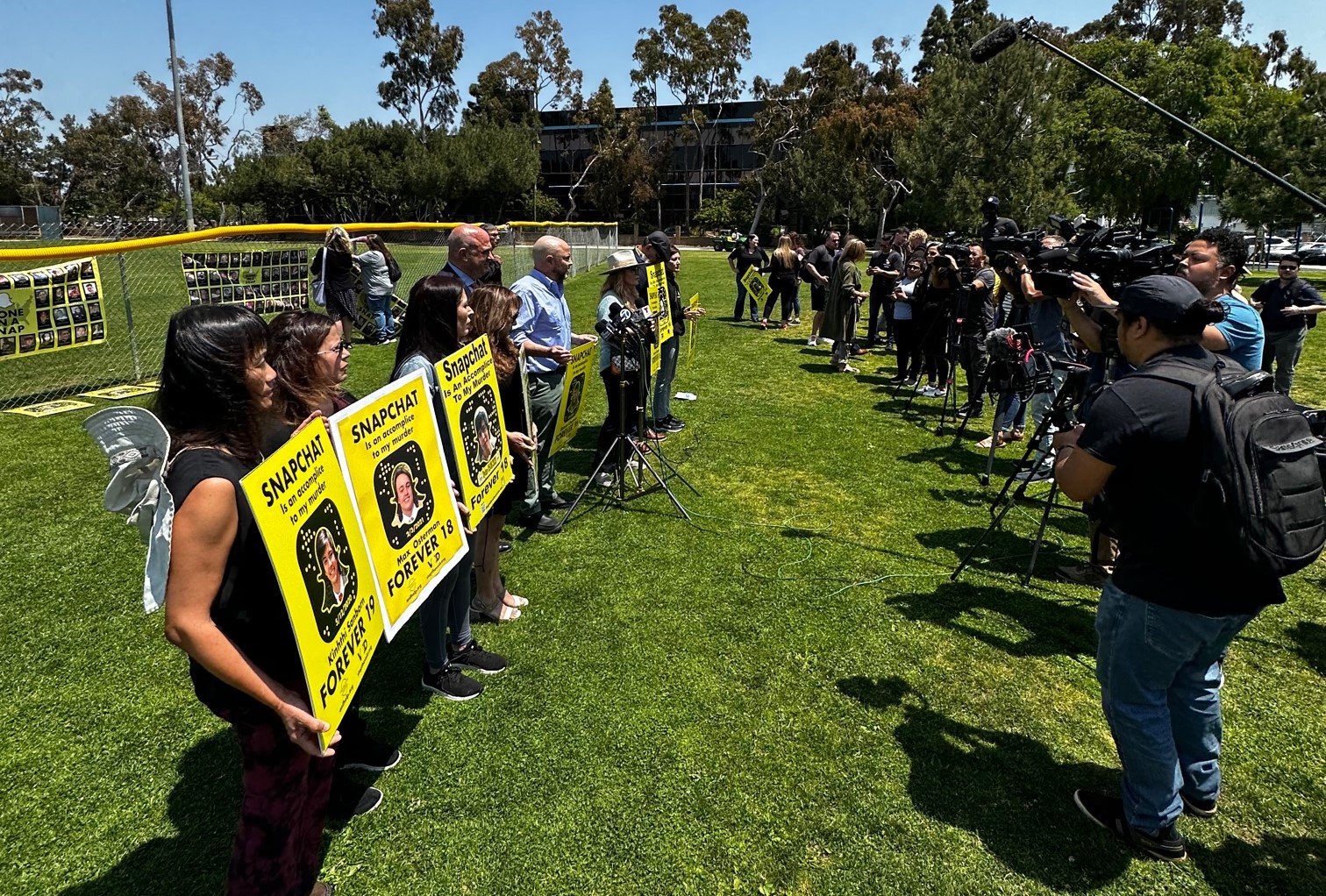
The event was covered by several news outlets, and the message of the rally reached a wide audience. Many media outlets reported on the urgent need for social media platforms to take more responsibility for the safety of their users, especially young people.
The success of the rally was a testament to the dedication of the Alexander Neville Foundation and VOID, who are committed to raising awareness about the dangers of social media exploitation. Their efforts to pressure Snapchat to do more to protect young people are an important step in creating a safer and more supportive online community for all.
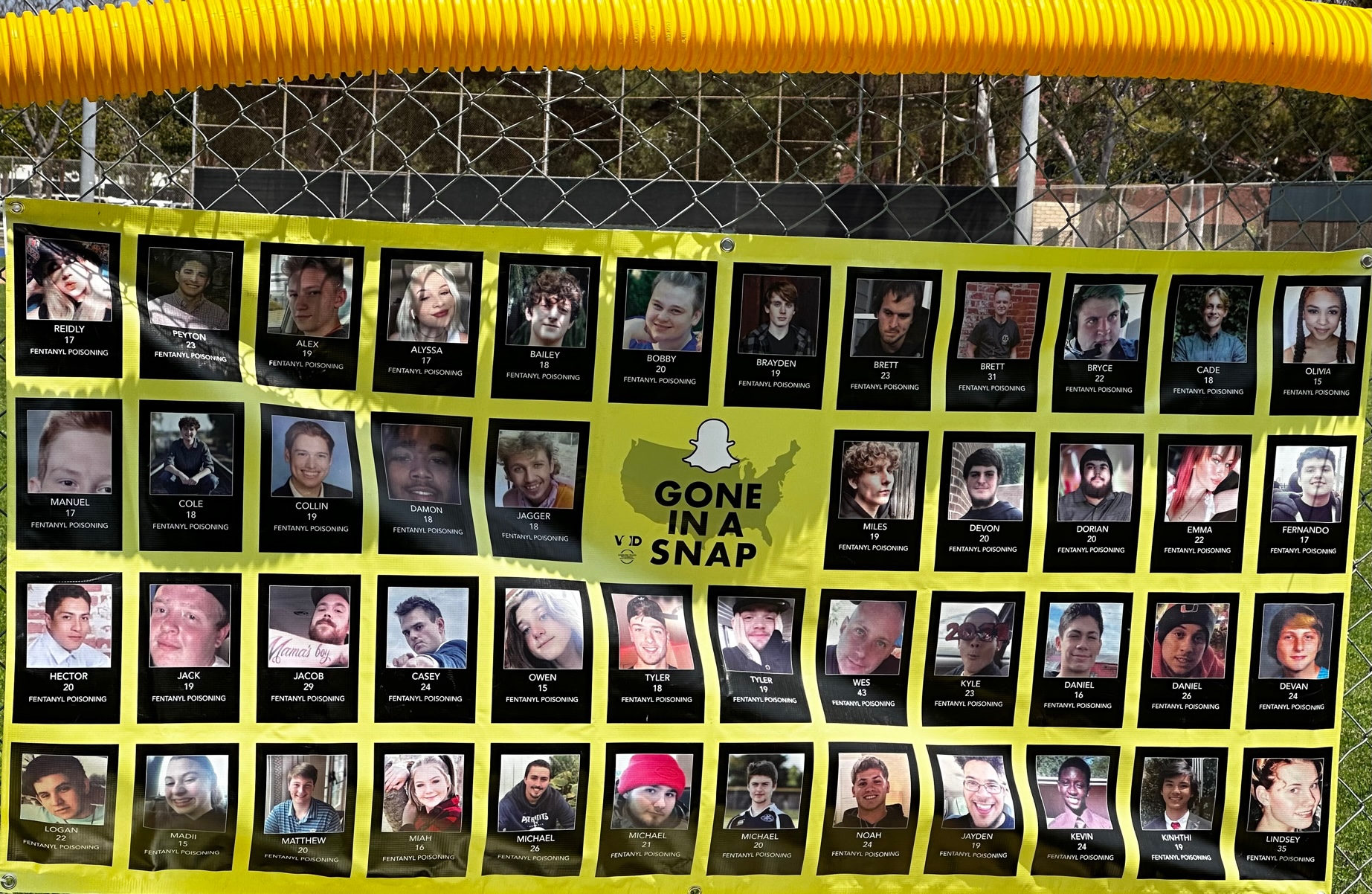
On Father’s Day, Sunday, June 16, 2023, a powerful movement unfolded in front of the California Attorney General’s office in Los Angeles, as groups from all across Southern California gathered for the Father’s Against Fentanyl rally and press conference. Led by the passionate advocate Matt Capelouto, parents and loved ones who have tragically lost family members to fentanyl poisoning came together to shed light on the devastating impact of the fentanyl crisis. Their urgent plea was directed at California Attorney General Rob Bonta, himself a father, to take decisive action in addressing the fentanyl epidemic.
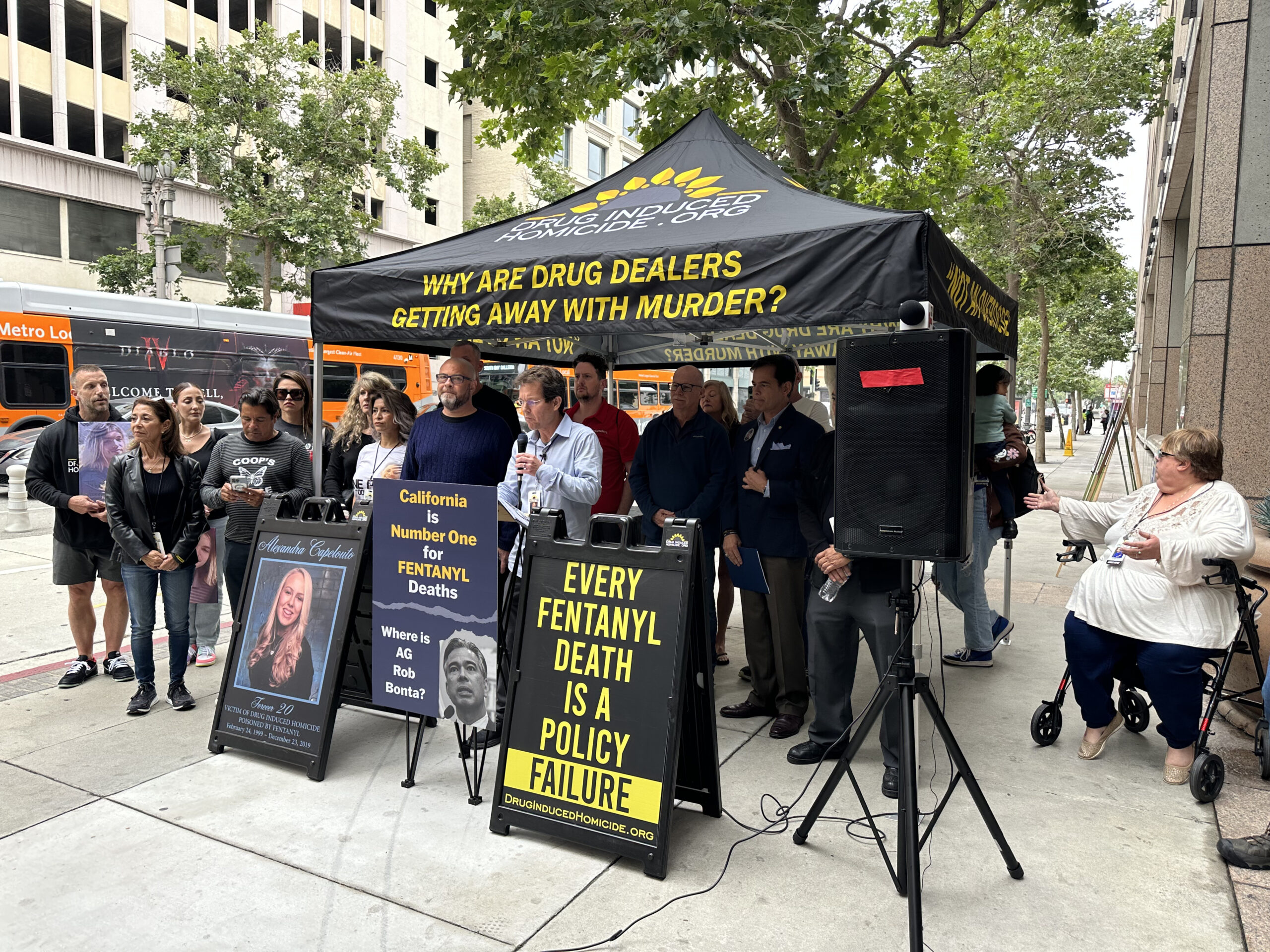
Raising Awareness and Demanding Action
The Father’s Against Fentanyl rally on Father’s Day was a poignant and symbolic event. Grieving parents and their allies stood united, sharing their personal stories of loss and emphasizing the critical need for effective measures to combat the fentanyl epidemic. Their heartfelt appeals echoed the experiences of countless families devastated by this deadly drug, magnifying the urgency for action.
FentanylSolution.org’s Support
During the rally, representatives from various news organizations attended the press conference and conducted interviews with participants. Among those sharing their insights and experiences was Shane Wood, the Director of Development at FentanylSolution.org. The organization, known for its unwavering commitment to combating the fentanyl crisis, joined Matt Capelouto and his organization DrugInducedHomicide.org, has been a leading force in raising awareness, advocating for policy changes, and supporting affected families.
Both organizations have played a crucial role in providing vital resources and information to educate communities about the dangers of fentanyl. Their websites serve as a comprehensive platform offering facts, statistics, and guidance on recognizing and responding to fentanyl-related risks. Through their initiatives, FentanylSolution.org has worked tirelessly to empower individuals and foster dialogue on this pressing issue.
Addressing the Fentanyl Crisis
The prevalence of fentanyl-related deaths has reached alarming levels in recent years, not only in Southern California but across the United States. Fentanyl, a synthetic opioid that is significantly more potent than heroin and morphine, poses a severe threat to public health. Its presence in illicit drug markets has led to a surge in overdose fatalities, leaving families devastated and communities in turmoil.
To effectively combat the fentanyl crisis, a comprehensive and coordinated approach is necessary. This includes increasing penalties for drug traffickers who kill with illicit fentanyl. FentanylSolution.org, along with other dedicated organizations and community activists, advocates for these measures and urges policymakers, including California Attorney General Rob Bonta, to take decisive action.
The Role of California Attorney General Rob Bonta
Rob Bonta, the California Attorney General and a father himself, holds a position of influence and responsibility in addressing the fentanyl crisis. As the state’s top law enforcement officer, he plays a vital role in shaping policies and directing resources to combat the epidemic. The Father’s Against Fentanyl rally urged Attorney General Bonta to prioritize this urgent issue, employing his authority and influence to drive meaningful change.
Additionally, Assemblywoman Mia Bonta, Rob Bonta’s wife, serves on the Assembly Public Safety Committee, which plays a crucial role in shaping legislation related to public safety, including penalties for fentanyl-related offenses. The rally participants expressed concern about the committee’s lack of progress in passing bills with penalties, highlighting the urgent need for action and collaboration across all levels of government.
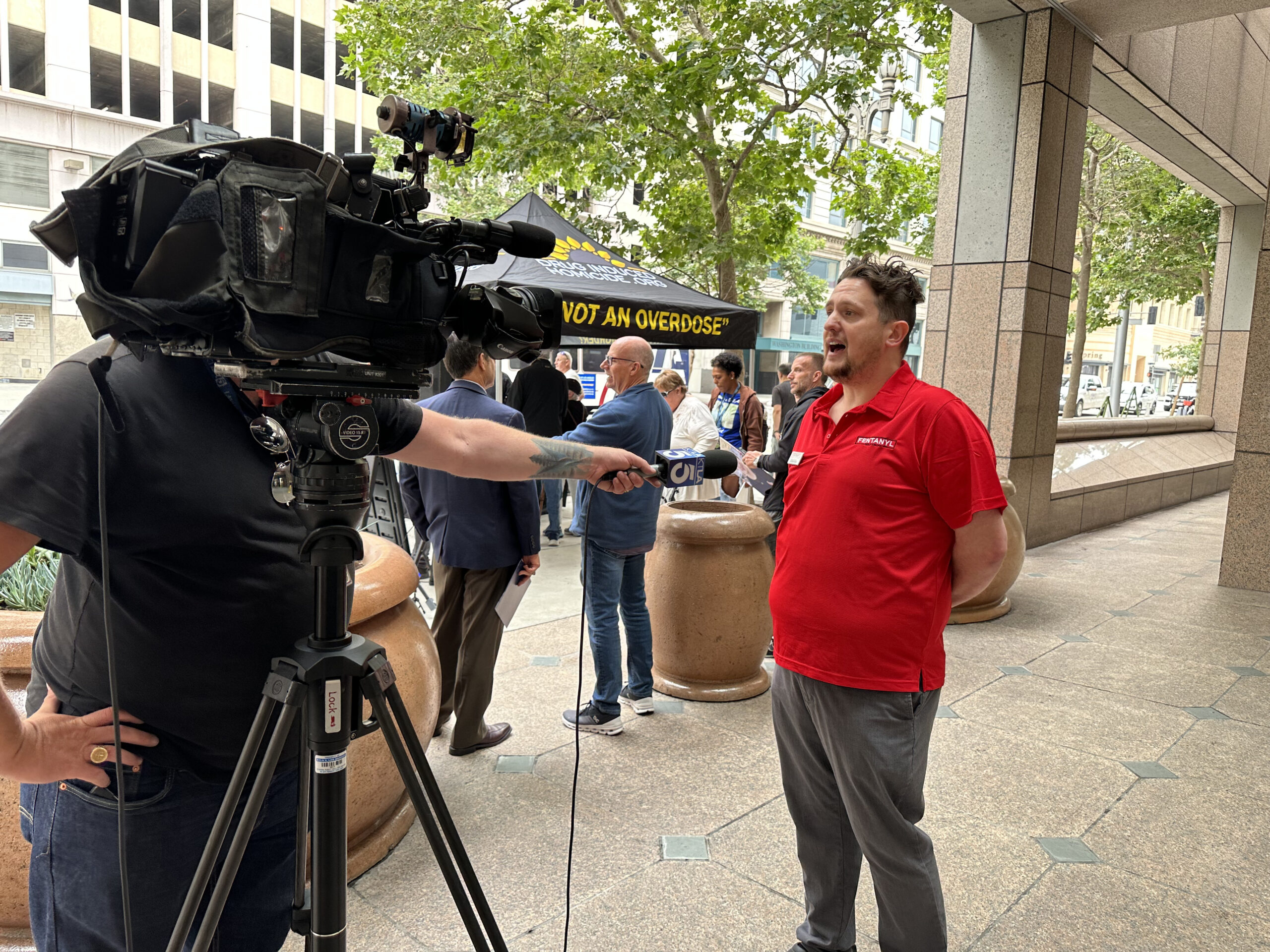
The Father’s Against Fentanyl rally on Father’s Day was a powerful demonstration of the collective determination to combat the fentanyl crisis and protect communities from the devastating consequences of this lethal drug. Led by Matt Capelouto and supported by FentanylSolution.org, grieving parents and loved ones came together, sharing their stories and intensifying the call for tangible action.
As the fight against fentanyl continues, it is crucial for organizations like FentanylSolution.org to provide essential resources, engage the public, and advocate for policy changes. Together, with the leadership of California Attorney General Rob Bonta and the collective efforts of policymakers, community activists, and affected families, we can forge a path towards a future free from the grip of this deadly epidemic.
On Wednesday, July 19, 2023, friends and family showed their support and comforted Tina Burke. She is one of FentanylSolution.org’s board members as well as a Christian’s mom. Christian was a 21-year-old victim of fentanyl poisoning 3 years ago on July 19, 2020.
He was a senior at the University of Arizona, relishing the summer season back at home in Mission Viejo. A testament to his work ethic and determination, he understood the value of hard work and its rewards. From his

experience as a quarterback and wide receiver for his hometown teams to his devoted studies, he often witnessed the fruits of his labor.

Yet, Christian’s vibrant persona transcended his diligent nature. His presence illuminated any room, captivating others with his spirited personality. People were naturally drawn to him, enchanted by his infectious laughter and captivating smile, which exuded love and joy.
Tragically, on July 19, 2020, Christian’s life took an abrupt and devastating turn.

He purchased and consumed a Percocet, unaware that it was a counterfeit pill containing a lethal combination of fentanyl and acetaminophen. Within moments, this beloved 21-year-old cherished son, brother, boyfriend, athlete, and college student, lost his life due to the consumption of a single fake pill.
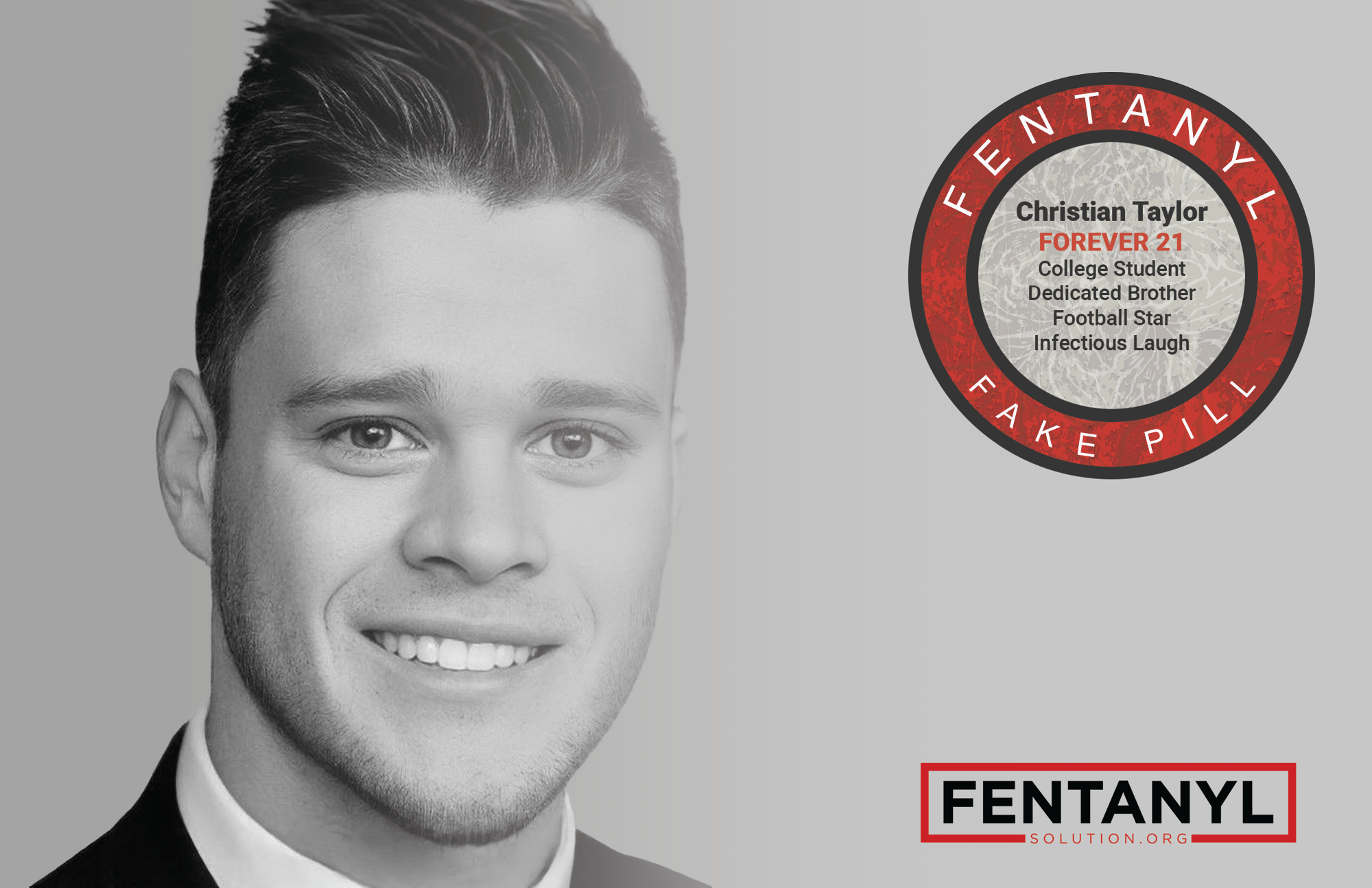
Join us in our crucial mission to save lives from the fentanyl crisis and drive impactful awareness. Your donation today will make a significant difference!
In this episode, President of the Alexander Neville Foundation (ANF) and mother of Alexander, Amy Neville speaks about the tragic death of her son due to fentanyl poisoning in an oxycodone pill. Neville talked about how her son was groomed by a dealer on social media
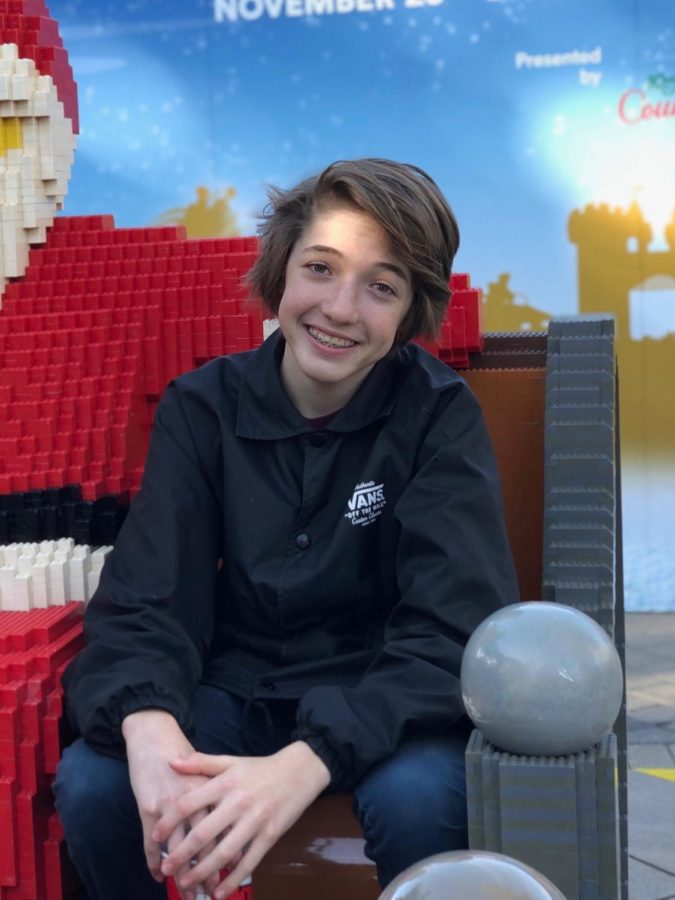
“Snapchat is the largest open-air drug market and what it does is it takes a very dark thing that used to happen in dark scary places and bringing it to light. There is a drug dealer in our kids pocket on their phone 24/7,” Neville said.
Snapchat who pretended to be his friend and sold him drugs. Both Janice and Amy urged kids to not believe
“They [Drug Dealers] tell them [kids] how cool they are, how fun they are, how smart they are, and how they seem to have a lot of clout with friends,” Neville said.

these drugs dealers are their friend and instead stay away from Snapchat because many dealers take advantage of the fact that
messages disappear after 24 hours. Amy Neville asks listeners to discuss this topic which is causing so many tragedies throughout the country and support the cause of stopping the Fentanyl Crisis.
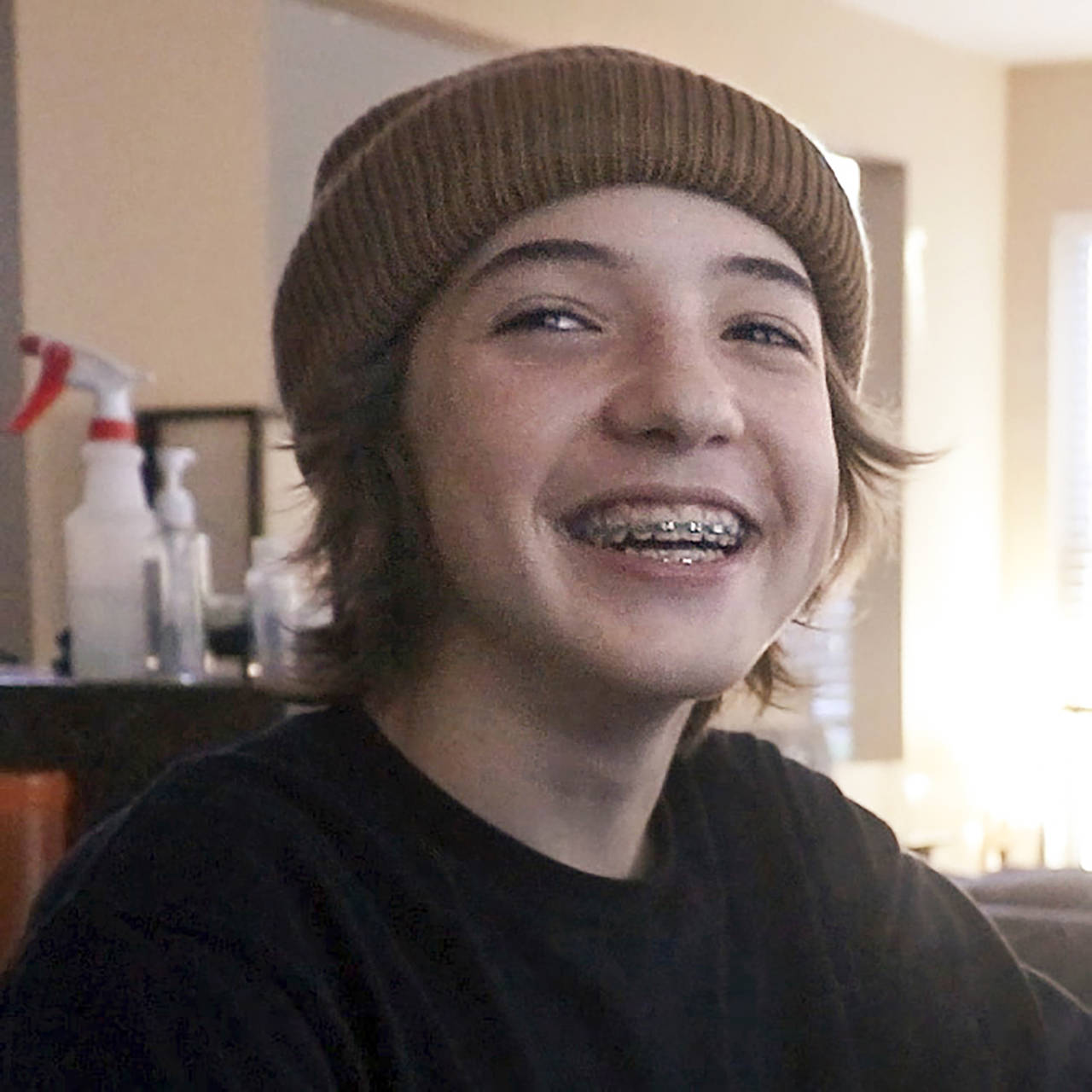
“I went to his room to wake him up, and he [Alexander] was gone,” Neville said.
Join us in our crucial mission to save lives from the fentanyl crisis and drive impactful awareness. Your donation today will make a significant difference!
This podcast features two guests, Carolyn Bradfield and Amber Toth, who are CEOs of technology companies dedicated to child safety amidst the fentanyl crisis.
“we have our phones filtered to not have access to any type of browser capabilities or social media…”
-Amber Toth
Amber’s company, Dragon Mobile, offers a secure cell phone service for kids, allowing only essential functions like calls and texts, shielding them from online risks.

“Our kids have access to entertainment and all of the stuff in so many other places that I want my Basics to be, can I get a hold of my child, do I know where they are…”
-Amber Toth
“It will be the first mobile app to take data from your smart watches and fitness trackers…”
-Carolyn Bradfield
Carolyn’s Interact Lifeline introduces Lifeline Connect, an app that employs smartwatch data to monitor health indicators; it alerts users and their contacts in case of potential overdose risks, while also providing educational resources.

“The mobile app will geo-locate you, it’ll tell you exactly where tell people where you are, someone from the emergency contact list will pick that up and direct help over to you in the event no one responds…”
-Carolyn Bradfield
Both guests stress the gradual introduction of technology to children under parental supervision. They highlight the importance of safeguarding children from online harm, tackling stigmatization, and preparing them for a tech-driven future. The podcast guides listeners to access Dragon Mobile’s services at dragoncellphone.com and Interact Lifeline’s Lifeline Connect app at interactlifeline.com. It concludes by urging caution in children’s tech use to ensure safety and well-being in the digital age.
Join us in our crucial mission to save lives from the fentanyl crisis and drive impactful awareness. Your donation today will make a significant difference!
To begin October Drug Awareness Month, FentanylSolution.org will post a dedication video to the loved ones lost to

fentanyl poisoning, our ‘Forever Angels’ on all social media platforms. We encourage anyone who would like an angel included in this video to submit their dedication to the form below.

Submissions must be received no later than 5:00pm September 22, 2023 to be guaranteed inclusion in the video. We will do our best to process late submissions,

but any submission after the deadline may not be able to be included in the video. We will also play the video at our Fight Fentanyl event on October 7, 2023. You do not have to be in attendance at the Fight Fentanyl event to submit for the Forever Angels Dedication–although
we encourage as many of you as we can to attend. For those interested in having their Forever Angel on a banner at our fall events in addition to the video, you can make a donation in their honor and specify your desire to have them included on the banner. This banner will be present at all official Fentanyl Solution events through 2023.

Banner Dedication
Please click the link below and choose Tribute Dedication. You can put the name of your Forever Angel write “Banner Dedication”.
Questions?
Please reach out to shane@fentanylsolution.org
